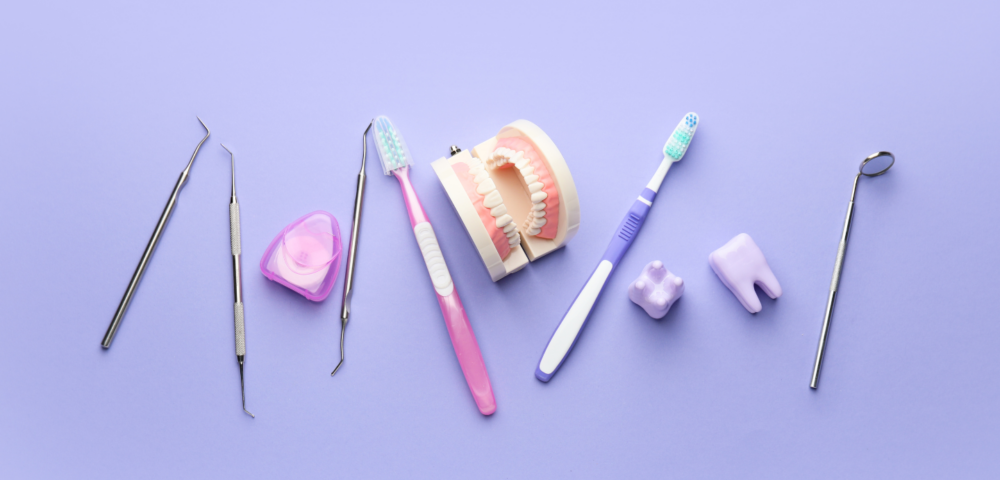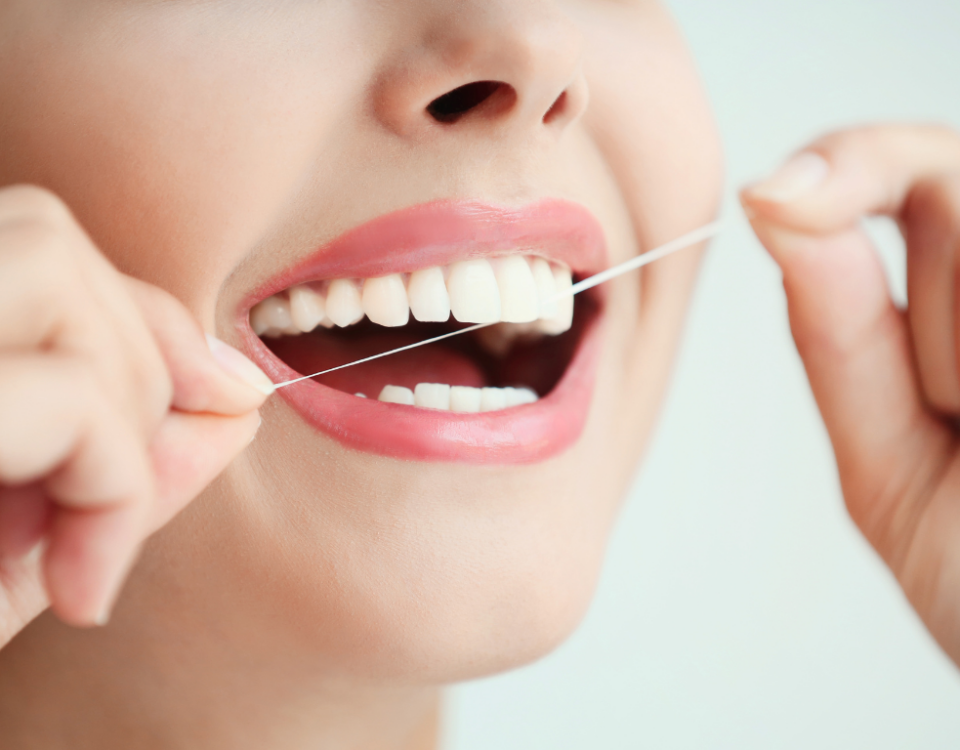
How Do You Know If You Have A Cavity
May 22, 2023
How to Get Over Dental Anxiety
June 22, 2023Key Takeaways:
Maintain a Consistent Oral Hygiene Routine:
Regular brushing, flossing, and using mouthwash are essential for preventing plaque build-up and maintaining overall oral health.
Get Regular Dental Checkups:
Professional cleanings and checkups are crucial to detect issues like gum disease, cavities, or oral cancer early.
Eat a Balanced Diet:
Nutrition plays a significant role in oral health. Foods rich in calcium, vitamins, and minerals can help strengthen teeth and gums, while sugary and acidic foods should be limited to prevent tooth decay and enamel erosion.
Having good oral health does more than keep your smile looking great. It can also keep you healthier by preventing or reducing the chances of problems linked to poor oral health. Even if you have dental or gum issues now, your dentist can help you fix them and maintain your healthier smile.
It’s never too late to take steps to preserve the health of your teeth and gums. Here are our top tips for how to improve oral health.
Why You Shouldn’t Ignore Oral Health
Healthy teeth and gums can help to keep your whole body in better condition. The Mayo Clinic describes links between poor oral health and the following problems:
- Birth complications or low-birth weight
- Endocarditis
- Pneumonia
- Cardiovascular disease
Having a few cavities does not mean you will develop the above conditions, but bacteria in your mouth from untreated decay or gum disease can increase your risk for these problems.
Even if you don’t worry about heart disease or aren’t expecting a baby, poor oral health can still cause more immediate problems, such as painful cavities or gum disease. According to the Centers for Disease Control (CDC), more than a fourth of adults over 18 have untreated dental cavities, and 47.2% over 30 have gum disease.
Waiting too long to get treatment for a minor oral health issue can lead to emergencies, such as tooth loss or severe pain. Taking steps to improve your oral health now can prevent these concerns.
How to Improve Oral Health
Even if you currently have mouth pain from untreated gum or dental problems, you can still get care to restore the health of your teeth and gums. Once you have any existing problems addressed, you can change your lifestyle to ensure long-term oral health.
Make an Appointment with a Dentist
It doesn’t matter if the last time you saw a dentist was last year or when you were a child, and you need to establish a routine of regular appointments with a dentist.
When you visit the dentist, you’ll get your teeth examined. If you have signs of gum disease, you may need to make an appointment to return for deeper cleaning of your teeth and gums. This deep cleaning of the gums can stop the progression of gum disease. If you don’t have gum disease treated, it will only worsen from minor inflammation, called gingivitis, to a more painful condition called periodontitis. Over time, gums affected by periodontitis may pull away from the teeth causing the teeth to become loose or fall out.
Once you have your gum health addressed, the dentist will perform an exam and x-rays to see if you have untreated dental decay. Cavities or deep decay may require fillings or root canal treatment.
Both types of treatment can stop dental pain and prevent infection and tooth loss. Plus, with today’s dental anesthesias and tools, you won’t feel pain during either procedure.
If decay has progressed too far, you may need a dental extraction. However, you don’t have to live with gaps in your smile. Dental implants, bridges, and dentures offer ways to restore your smile with artificial teeth.
After your initial appointment, schedule visits at least twice a year or more often if the dentist recommends them. You may need to make more frequent appointments if you have existing medical conditions that can impact your oral health, such as cancer, tobacco use, or pregnancy.
Set Up a Daily Routine for Oral Health Care
Treat yourself to a new toothbrush, floss, and fluoride-based toothpaste to start your healthy smile routine. Use a soft-bristled brush and replace it every three to four months or when the bristles appear bent. Both electric and manual toothbrushes can be equally effective as long as you brush properly.
Hold the brush gently at a 45-degree angle to the teeth. Brush for a full two minutes and focus on reaching all surfaces of your teeth. Use a circular motion when brushing to clean food and plaque from your teeth gently.
Floss between your teeth to clean where your brush cannot reach. If you have a water flosser, don’t rely on that for deep cleaning between your teeth. Whenever you brush, make sure to floss, too. When used together, these habits can prevent decay and gum disease.
Make sure to brush before you go to bed at night and once more during the day. Once a day, rinse using an antibacterial mouthwash to kill germs. However, don’t rinse right after brushing because you want the fluoride from the toothpaste to stay on your teeth for at least 30 minutes to offer cavity-fighting protection.
Quit Using Tobacco Products
Smoking and chewing tobacco increase your chance of not just oral cancer but also cavities and gum disease. In addition, smoking can stain your teeth, making them appear brown and aging your smile.
Let your dentist know that you smoke or use tobacco. If you need help quitting, talk to your doctor to find out options to help support you as you do.
Keep a Healthy Diet
Drinking tap water with added fluoride can prevent cavities. Plus, sugar-free water naturally helps you to improve your oral health by replacing sugary sports drinks or sodas. When you have acidic beverages, wait half an hour before brushing your teeth and rinse your mouth with water. The acid from the drinks can damage tooth enamel when you brush your teeth. Rinsing and waiting can reduce the harm done by the acid.
Eating a balanced diet with more fruits and vegetables provides your body with nutrients to improve your overall health, including that of your mouth. Plus, replacing sugary snacks with less-sweet options reduces exposing your teeth to cavity-causing sugar between meals.
Make Langley Dental Care Your Dentist to Help You Improve and Maintain Good Oral Health
If you don’t already have a dentist, come see us at Langley Dental Care. We’re here to help all our patients get great smiles and keep those grins healthy for life. Contact us today to set up your appointment to start your journey toward getting healthier teeth and gums.



